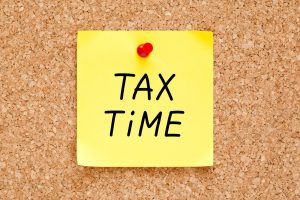2017 Federal Tax Changes Business Owners Need to Know

Tax season is upon us, and with it comes a variety of changes that business owners need to know about. Here’s an overview of some of the most important changes:
New tax filing deadlines
These deadlines apply for 2016 tax filings:
- C-corporation filings are pushed back to 04/15/17
- Partnerships, LLCs & S-corporations must file by 3/15
- Certain 1099 Misc. and W-2’s must be filed with the IRS by 1/31/17
Note that if you are a KRS client, you will receive an email in the next day or so to get you started on your 1099s. Be sure you have all your subcontractor and vendor W-9s completed so that 1099 completion can be done quickly to meet the month-end deadline.
PATH Act eliminates some uncertainty
The Protecting Americans from Tax Hikes Act of 2015 (PATH) enacted at the end of 2015, made permanent many business-related provisions that had been up for renewal, including:
- 100% gain exclusion on qualified small business stock
- Reduced, five-year recognition period for S corporation built-in gains tax
- 15-year straight-line cost recovery for qualified leasehold improvements, restaurant property and retail improvements
- Charitable deductions for the contribution of food inventory
- As KRS partner Simon Filip said in Five Ways the PATH Act Can Reduce Your Tax Burden, “The PATH Act is a positive thing for a couple reasons. Any tax savings for small business owners is great. Also, it eliminates some uncertainty, which will make it easier for small businesses to plan their tax liability.”
Good news about the Section 179 tax deduction
Section 179 of the tax code defines the deduction a business can take on the price of qualifying equipment purchased or leased during the tax year. Qualifying equipment could include almost any big-ticket item you need to do business, such as a computer, certain software, office furniture or machinery.
The $500,000 deduction regarding equipment purchases less than $2M now permanent.
R&D credit can help reduce tax liability
New changes in R&D credit allows certain businesses to apply the R&D credit to the AMT or possibly offset payroll taxes. The PATH Act made the R&D tax credit permanent, which is welcome news for businesses investing in research and development.
Update on bonus depreciation
Bonus depreciation is a method of accelerated depreciation which allows a business to make an additional deduction of the cost of qualifying property in the year in which it is put into service.
- 50% deduction of the costs of new equipment continues through 2019, decreasing to 40% in 2018 and 30% in 2019. Bonus depreciation is set to expire by 2020 unless there is further action by Congress.
- Replaces the bonus allowance for a qualified leasehold improvement property with a bonus allowance for additions and improvements to the interior of any nonresidential real property, effective for property placed in service after 2015.
Work Opportunity Tax Credit extended
The Work Opportunity Tax Credit gives employers a tax credit when they hire unemployed veterans, food stamp recipients and ex-felons. The PATH Act extends the credit through 2019 with an added 40% credit up to the first $6,000 in wages for employers who hire workers that have been out of work for at least 27 weeks.
Revised repair regulations can increase deductions
The IRS issued final tangible property regulations (aka, the “repair regs”) over three years ago. These regs continue to control the accounting for costs to acquire, repair and improve tangible property. They impact virtually all asset-based businesses and have reverberated into 2016, with additional “clean-up” expected in 2017.
For 2016 year-end planning, work with your accountant to see if either a de minimis expensing safe harbor or a remodel-refresh safe harbor can be applied. Both can yield substantial immediate deductions if followed.
We’ve Got Your Back
Tax laws grow increasingly complex and it can be hard to know how to save taxes. At KRS we assist our business clients in minimizing tax liabilities by providing them with comprehensive tax planning, preparation and compliance services. We’ve also developed resource pages, New Tax Law Explained! for Individuals and for Real Estate Investors, to help you stay on top of what you need to know about the evolving tax codes.



